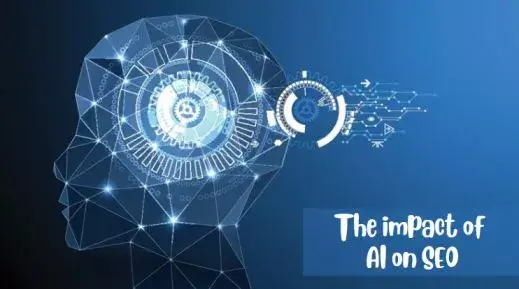AI (Artificial Intelligence) and SEO (Search Engine Optimization) are closely related in today’s digital world. AI is increasingly being used to enhance and optimize SEO strategies, as it can analyze and understand large amounts of data and patterns to improve search engine rankings and increase traffic to websites.
AI and SEO have become increasingly interconnected in the digital age. The use of AI technology in SEO strategies has revolutionized the way we approach search engine optimization.
AI can analyze vast amounts of data and patterns to improve search engine rankings and increase website traffic. By using AI for content creation, businesses can generate relevant and engaging content that is optimized with the right keywords and structure.
AI can also assist with keyword research by analyzing search trends and user behavior to identify the most relevant keywords and phrases to target. Additionally, AI-powered tools can understand the intent behind user queries and produce more accurate search results.
By using AI for analytics, businesses can gain insights into user behavior and make data-driven decisions to improve their SEO strategies. Overall, the integration of AI technology in SEO has made it easier to optimize content, increase website traffic, and enhance user experiences.
As an AI language model, I can provide insights into how AI may impact the future of SEO. Here are 9 things we know for sure:
1. AI will change the way search engines rank websites: With the help of machine learning algorithms, search engines will become better at understanding user intent and providing the most relevant results.
2. Natural language processing will become more important: As AI technology advances, search engines will be able to understand natural language queries better, which means that content will need to be written in a more conversational tone.
3. Voice search will become more prevalent: As more people use voice assistants like Siri, Alexa, and Google Assistant, SEO strategies will need to focus on optimizing for voice search.
4. Personalization will become more important: AI will enable search engines to personalize search results based on a user’s location, search history, and other factors.
5. Image and video search will become more sophisticated: With the help of AI, search engines will be able to recognize and analyze images and videos, which means that SEO strategies will need to focus on optimizing for visual search.
6. AI will help identify and penalize spam: Machine learning algorithms will be able to identify spammy and low-quality content more effectively, and penalize websites that use such tactics to manipulate search rankings.
7. AI will make content creation easier: AI-powered tools can help automate content creation, including generating headlines, writing summaries, and even creating entire articles.
8. AI will help marketers better understand their target audience: With the help of machine learning, marketers will be able to better understand their target audience and create more personalized content.
9. AI will help automate certain SEO tasks: With the help of AI, SEO tasks like keyword research, link building, and website analysis can be automated, allowing marketers to focus on other areas of their campaigns.
AI has the potential to significantly impact the future of SEO, and marketers will need to stay up-to-date with the latest advancements to remain competitive in the search rankings.
Artificial intelligence (AI) is already having a significant impact on search engine optimization (SEO), and this trend is likely to continue in the future.
How Al is Changing Marketing and SEO (And How to Use it In Your Business)
Here are some ways in which AI is affecting SEO:
Improved Search Results: Search engines are using AI algorithms to improve the relevance and accuracy of search results. These algorithms use machine learning to analyze user behavior and understand the intent behind their searches. This helps search engines provide more accurate and personalized results.
Natural Language Processing: AI-powered natural language processing (NLP) is being used to better understand the meaning behind search queries. This means that search engines can better match content to user intent, even if the query uses complex language or unusual phrasing.
Voice Search: The rise of voice assistants like Siri, Alexa, and Google Assistant is changing the way people search for information. Voice search queries tend to be longer and more conversational, and AI-powered NLP is helping search engines to better understand and respond to these queries.
Content Creation: AI-powered content creation tools are becoming increasingly sophisticated. These tools use machine learning to generate high-quality content that is optimized for search engines. While they cannot replace human writers entirely, they can help to speed up the content creation process and generate ideas for content.
Personalization: AI-powered personalization algorithms are being used to deliver personalized search results and content recommendations. This means that search results and content can be tailored to the individual user’s interests, location, and search history.
Overall, AI is likely to have a profound impact on the future of SEO. As AI technologies continue to evolve, they will help search engines provide more accurate, relevant, and personalized search results. This means that SEO strategies will need to adapt to keep pace with these changes, and marketers will need to stay up-to-date with the latest AI-powered SEO tools and techniques.
